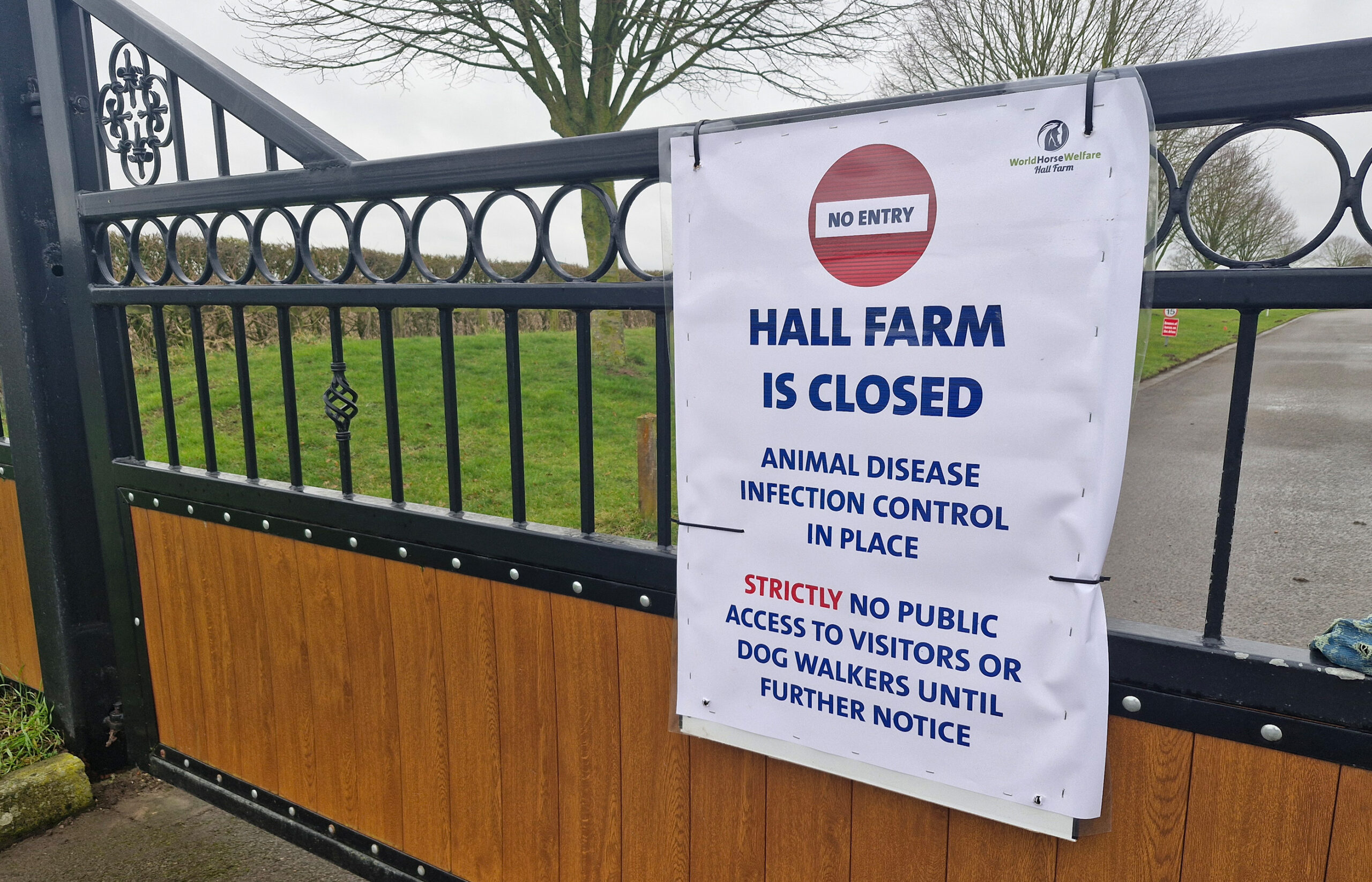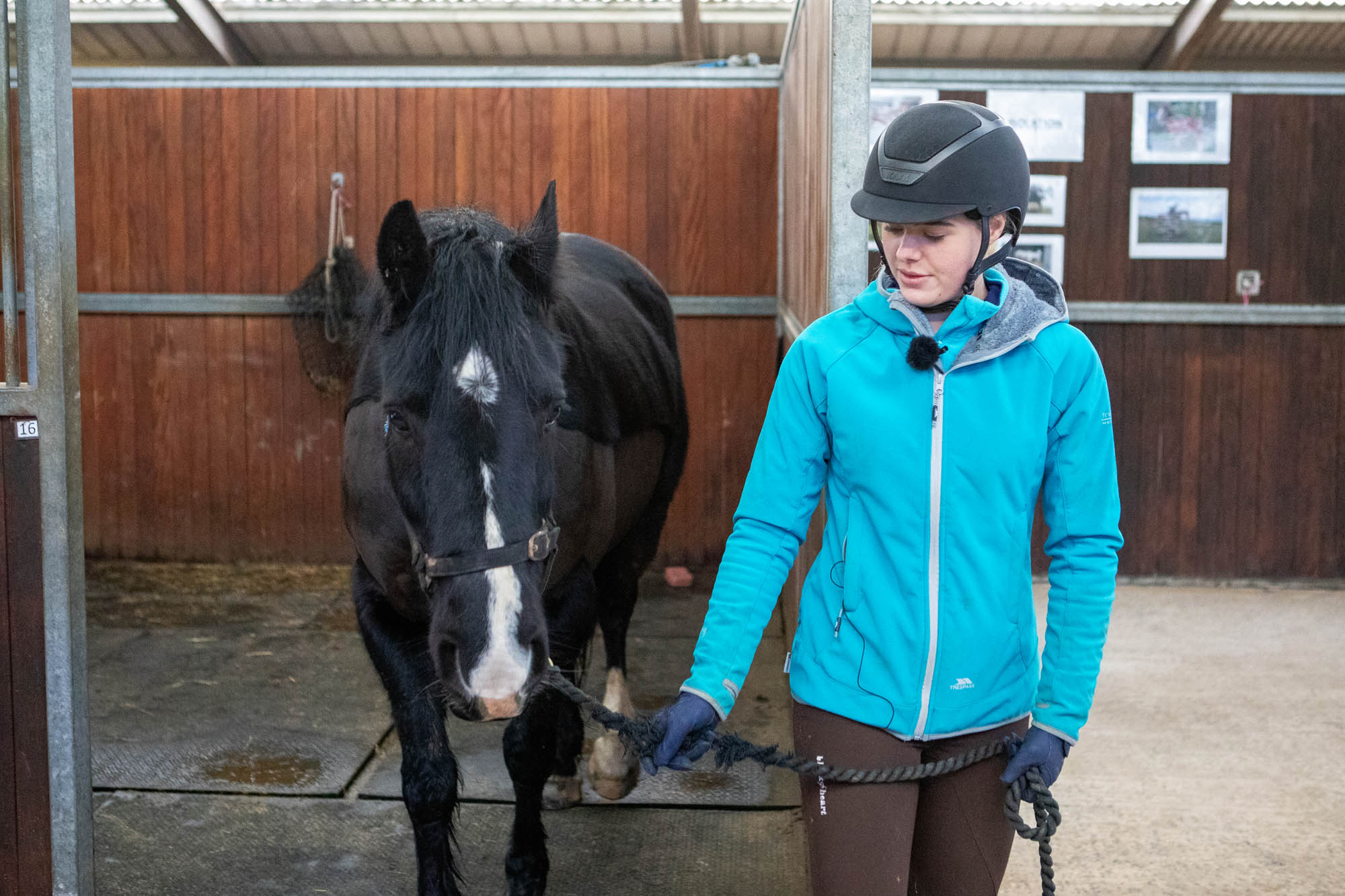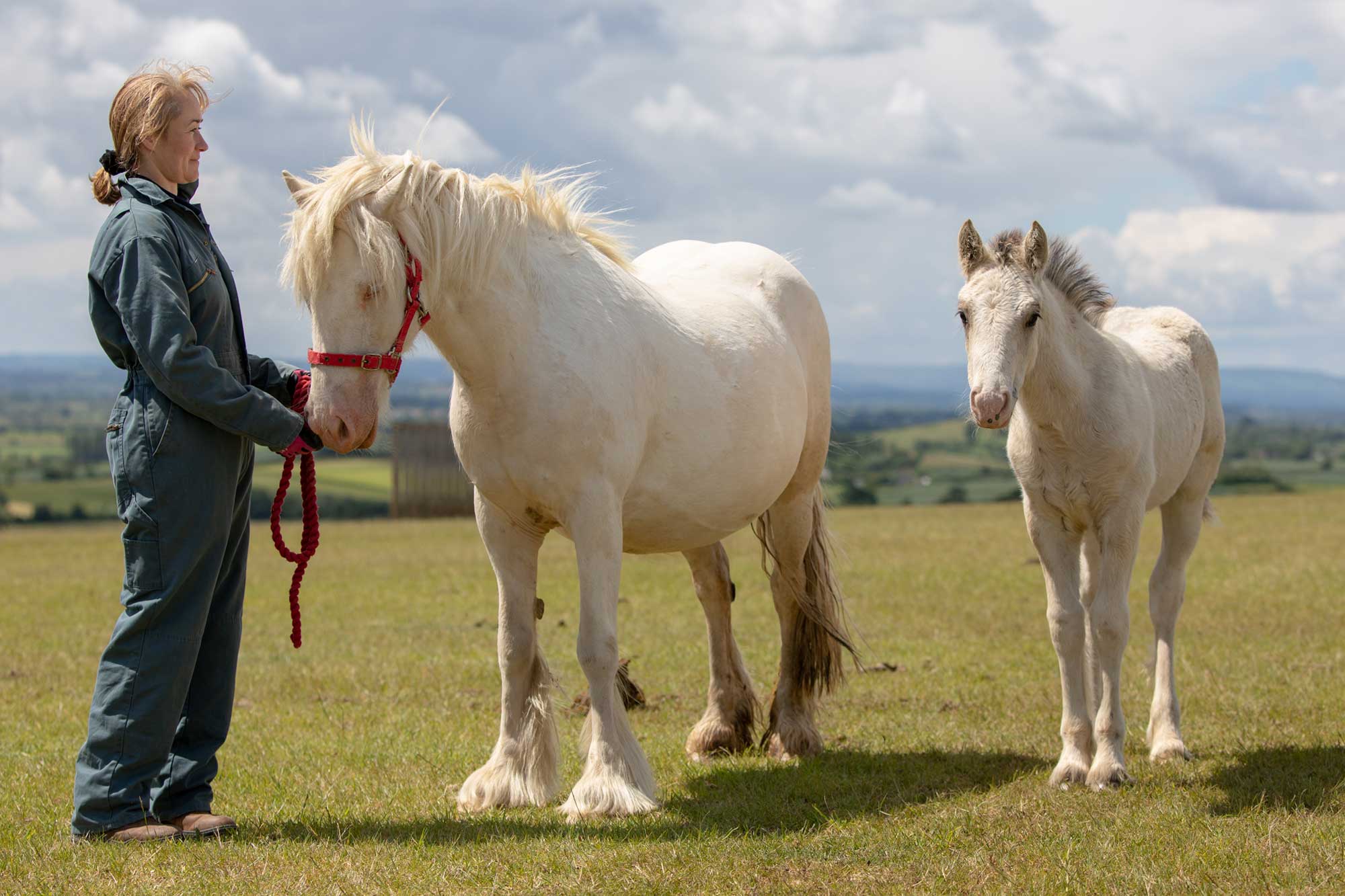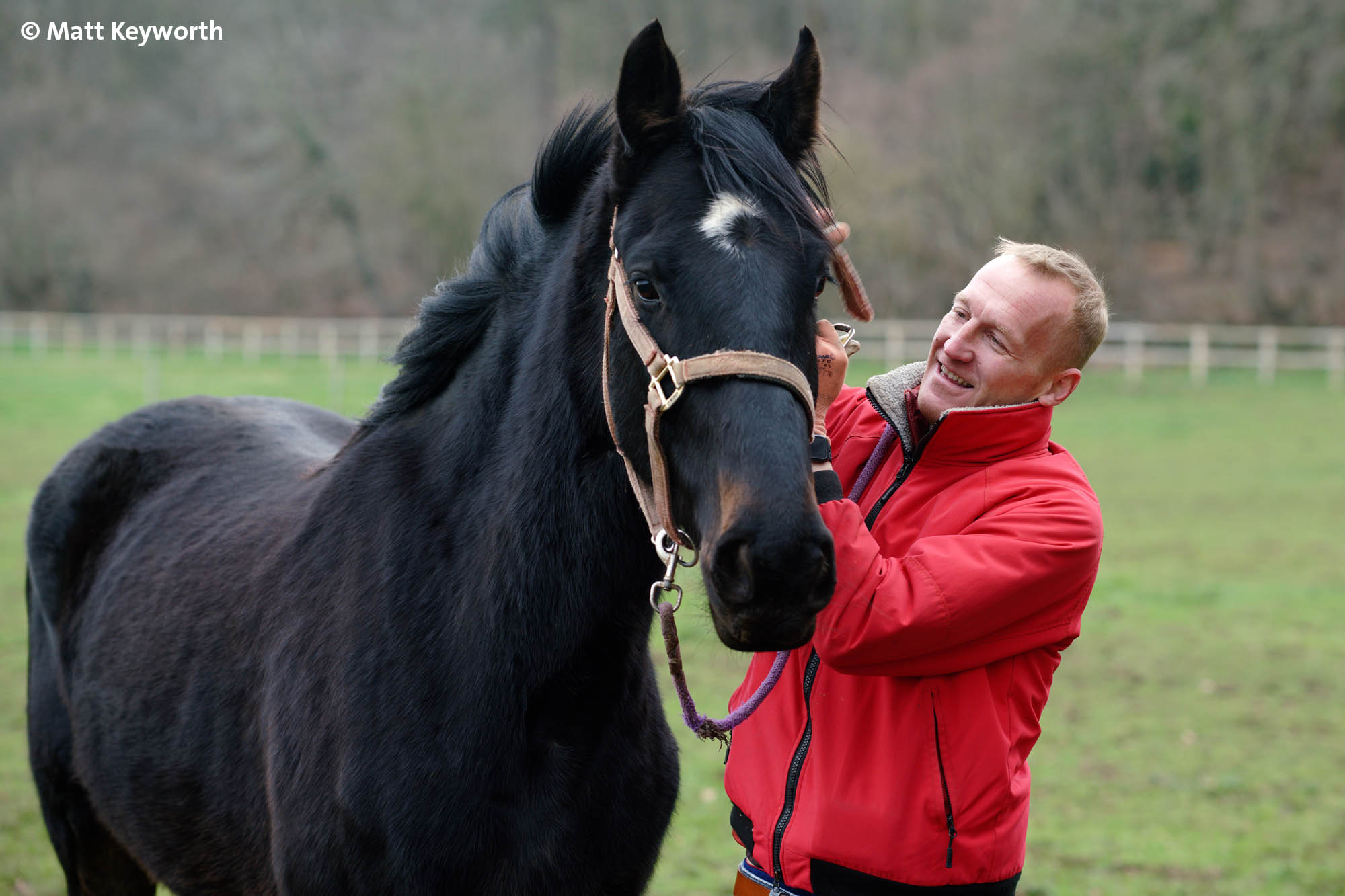Our Norfolk farm temporarily closes to visitors
Our Norfolk rescue and rehoming centre closes to the public as more cases of strangles are detected.
Posted on 20/02/2025

Following a recent case of strangles – a highly infectious respiratory disease of horses – at our Hall Farm Rescue and Rehoming Centre in Snetterton, Norfolk, the movement of horses both in and out of the farm was suspended last week as is protocol to prevent the disease from spreading.
However, further cases on the farm have led to the closure of Hall Farm to visitors as an additional precautionary measure.
World Horse Welfare’s Director of UK Support, Malcolm Morley said:
“Given the nature of the horses World Horse Welfare helps, cases like this are not unexpected, and the team have well-rehearsed biosecurity measures to mitigate the risk of disease spread.
“Whilst the risk of strangles spreading off the farm by visitors is extremely low, we felt we should take this additional step and close our doors to visitors whilst we investigate.
“We would like to apologise to everyone who had planned to visit Hall Farm this half term and reassure those who have visited recently that the disease poses no risk to humans.”
Strangles is not a notifiable disease but due to its prevalence and the fact it is so infectious, we are taking robust action to bring its spread to a halt and protect the wider equine population.
Read more about strangles on our advice page.
Topics
Related News

Mrs Potts staying trim with the support of Baileys Horse Feeds
Keeping Mrs Potts at a healthy weight has been a challenge but now, with the support of feed company Baileys Horse Feeds, a healthy balance has been found.

Esme’s back – and this time she’s visited our Glenda Spooner Farm!
YouTube star This Esme recently visited Glenda Spooner Farm to find out just what it's like to be a World Horse Welfare groom.
Recommended Blog Posts

The senior horse: nutrition in sickness and in health
Find out more about the key considerations when caring for older horses, whether in work or retired and whatever their health status.

What does biosecurity mean and how do you quarantine a new horse?
Research and Education Officer Alana Chapman shares simple steps you can take to prevent an outbreak of disease on your yard.

How I came to rehome Romeo
Field Officer Chris Shaw describes how he came to rehome Romeo after attending a welfare concern back in 2015.
Enjoy reading stories like this?
Join over 55,000 other horse lovers and sign up for our email newsletter

Join over 55,000 other horse lovers and sign up for our email newsletter
Sign me up now